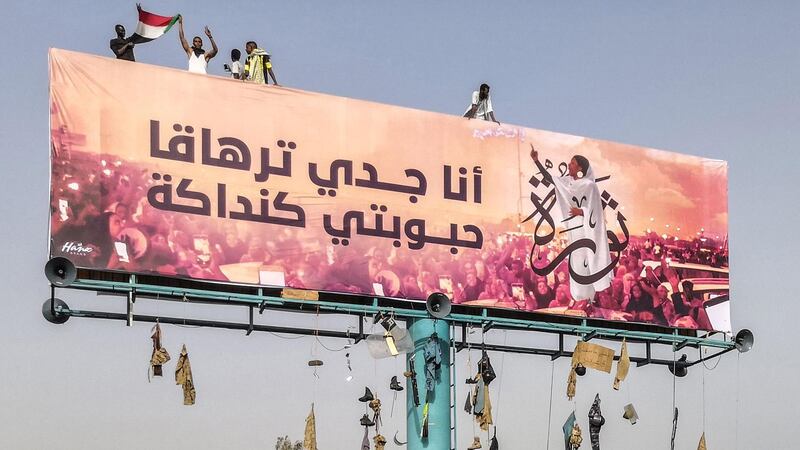Since protests began late last year, women have been a driving force behind the movement that toppled Sudan's longtime president Omar Al Bashir. This is no coincidence. For nearly 26 years, Mr Bashir's conservative regime restricted women's freedom of movement, controlled what they could wear and discriminated against them at every turn. In recent weeks, Alaa Saleh, who has become widely known as "Kandaka" or Nubian queen, has emerged as the face of a vibrant national drive for change. But she is just one of many. Whether activists, protest organisers or tea sellers, Sudanese women of all ages have taken to the streets. Many have been harrassed, arrested and jailed, often detained in cold, cramped, windowless cells known as "refrigerators".
During his rule, Mr Al Bashir allied himself with hardliners and trampled all over women's rights. "For years, women went to court to be punished by judges for just being out alone at night or wearing pants," Elaf Nasreldeen Suleiman told The National. These restrictions aimed to erase women from public spaces. They also placed them in danger behind closed doors, with young girls often forced into marriage and denied education.
Faced with such oppression, it is not surprising that thousands of women have now taken matters into their own hands. "The revolution was our answer," said Ms Suleiman. Following the fall of Mr Al Bashir, an interim military council took over, causing further public anger. It now appears that the 15-member body will welcome eight civilians. And yet, demonstrators remain on the streets, dancing, singing and hoping for a better future. Amid this carnival atmosphere, women are enjoying new freedoms – to be seen, to dress how they wish and to have a say in the direction their own lives and their country will take. While many people around the world take similar liberties for granted, in this case they have been hard-won. They must now be enshrined and protected for generations of Sudanese women to come.





